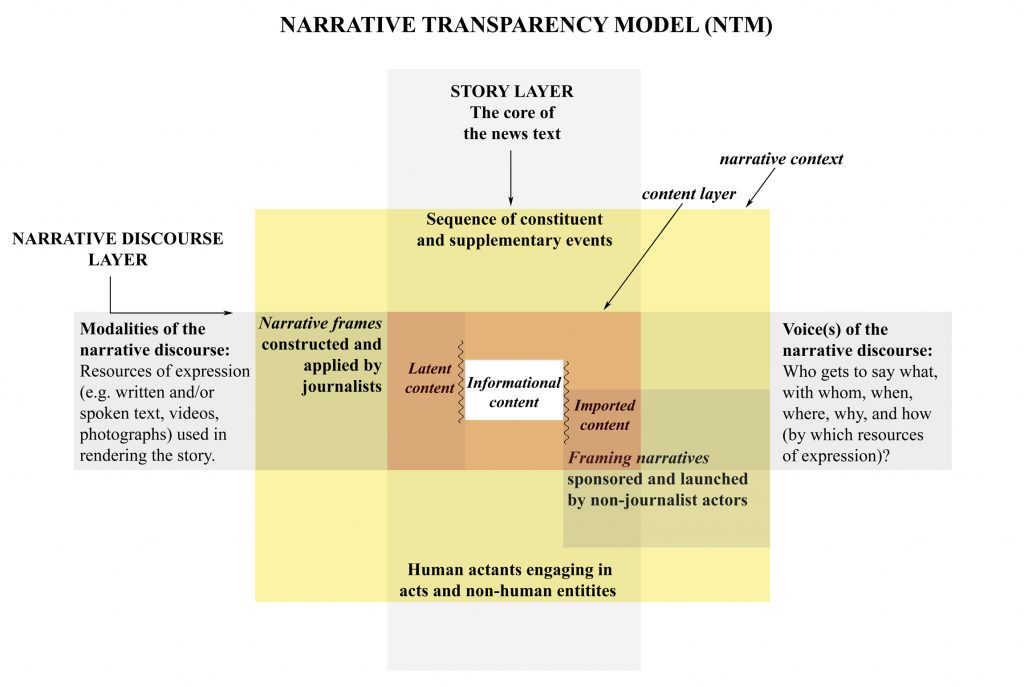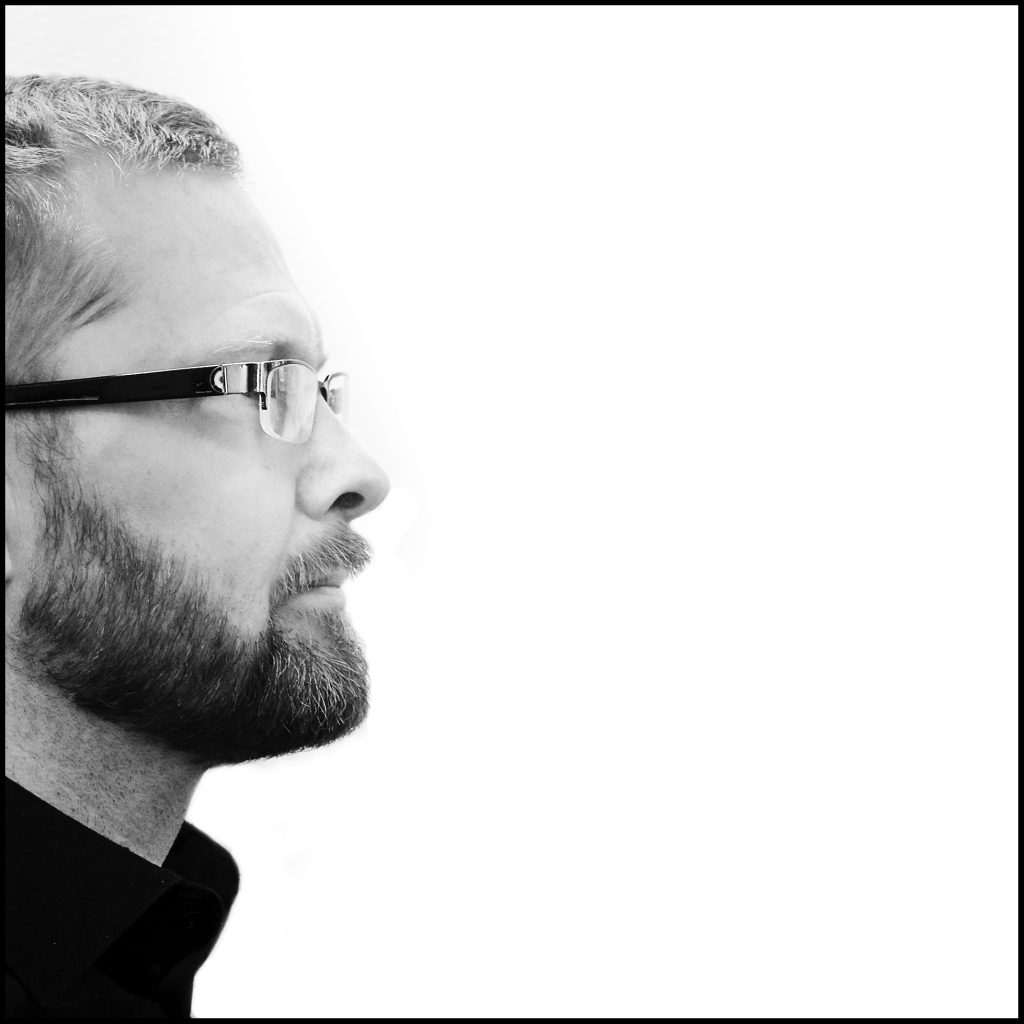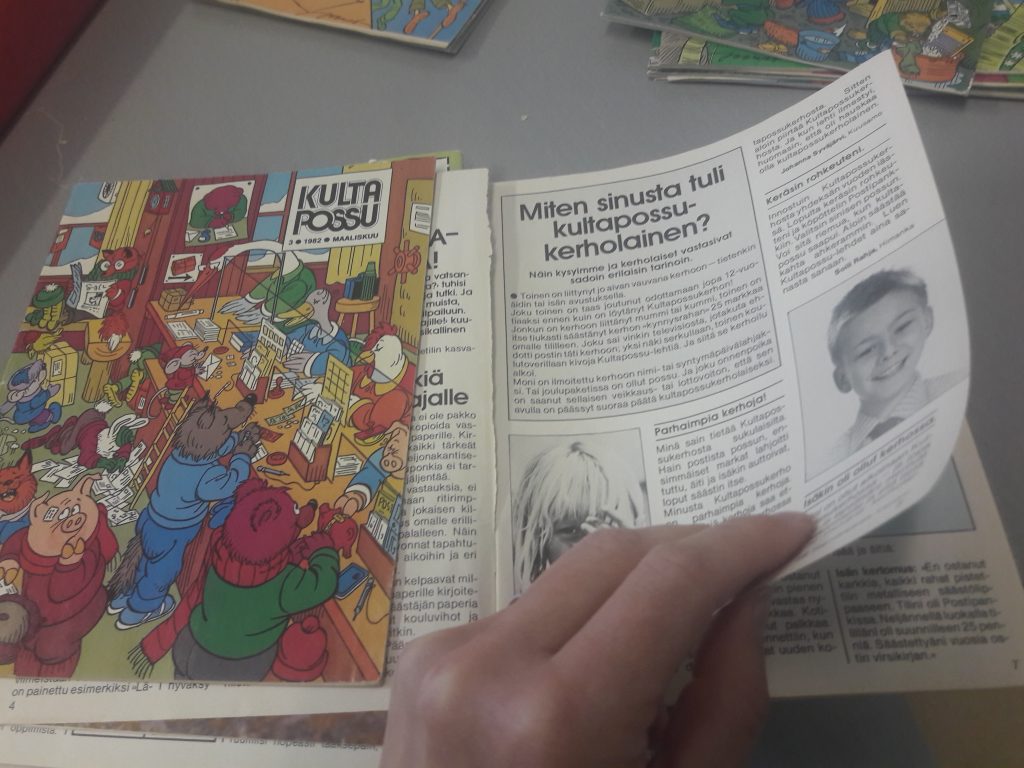New Media / Doctoral Seminar (DOM-L0007)
Welcome to November’s New Media Doctoral Seminar!
Presentations are open to everyone!
Join us in Zoom:
Thursday // 19.11.2020 // 16:30-19:30
https://aalto.zoom.us/j/61913960646
________________________________________________________________________________________________
Mediated by Professor Lily Diaz-Kommonen we will have two fascinating presentations + Q&A discussion after the presentations.
Presentations by:
Yrjö Tuunanen
Doctoral Candidate / Aalto University / Department of Media / School of Arts, Design and Architecture
Heidi Hirsto
DSc(Econ), works as Associate Professor in University of Vaasa, School of Marketing and Communication and Digital Economy Research Platform.
________________________________________________________________________________________________
Yrjö Tuunanen
Narrative Frames and Framing Narratives – Narrative transparency in news discourse
Abstract
Narrativity and transparency in news media can be regarded as reactions to the ubiquitous communication online where numerous actors seek for audience attention and compete for claims to truth. Yet, the relationship of narrativity, transparency, and truth, is complex, and there is a need for studying their relations from the perspective of narrative persuasion. Nevertheless, definitions of and research on narrative transparency in journalism has had little attention among news media scholars. The research of the author aims to contribute for filling this gap.
In his dissertation the author seeks to contribute to an increased need for knowledge about narrative structures, how these are used in the news, and the effect they have in the attribution of truth-value. In order to do that, he explores possibilities and challenges brought about by the internet, social media, and digitalization, as well as the shift in professional journalistic ideals and practices from objectivity towards transparency and narrativity. The research indicates that while there are some studies that analyze the challenge of “false narratives” in news discourse as well as media manipulation in online environments, there is still a need for studying subtle forms of narrative persuasion in both digital and more traditional forms of journalism.
The current mediasphere can be seen as a complex discursive environment where numerous known and unknown storytellers deploy narrative framings to direct attention toward certain interpretations of news. Digital media and the internet facilitate openness, interaction, and instant access to media discourses for media professionals and audiences alike. It enables new discursive platforms and facilitates new narrative forms as well as transparency practices online. While the potential of social media to promote diverse voices is widely acknowledged, there are also several problems and challenges associated with social media and their relation to professional journalism. Fake news, social bots, internet trolls, and echo chambers on social media platforms are phenomena related to disinformation campaigns and manipulation on public opinion in news discourse.
In this presentation, in addition to the etiology of some of the central concepts of the research, the author focuses specifically on how non-journalist participants affect news discourse. In other words, the presentation sheds light on a form of narrative persuasion through which non-journalist participants may affect news discourse by importing content from outside the primary “news frames” and cueing into underlying “framing narratives”. The author introduces a conceptual analysis model, titled Narrative Transparency Model, and discusses how it may help to theorize and demonstrate how framing narratives may be imported into news stories to unsettle journalistic narrative frames, and how imported content, such as vague or misplaced references, may generate discursive power through mobilizing framing narratives.
Bio
Yrjö Tuunanen is doctoral candidate in Aalto University School of Arts, Design and Architecture, Department of Media, Media Lab, Helsinki, Finland. He holds a Master’s Degree in Photography from University of Industrial Arts, Helsinki, Finland. His research interests concern critical, multimodal, and narrative approaches to media discourses in both digital and more traditional forms of journalism. His dissertation focuses on discursive functions of narrative assets in media discourses. In his current research, he studies how narrative transparency may support credibility of professional journalism as well as advance analytical and critical news discourse skills for media audiences and professionals alike.
During 1990 – 2012, he worked as a photojournalist and a teacher of digital and documentary photography. During 2012 – 2013, together with Heidi Hirsto, D.Sc. (Econ.), he implemented an international collaborative research project titled, M-Scopes, Mediated Significations of Finance, focusing on the ways in which economic phenomena and mechanisms are represented in the web-based news media. He has produced, organized, and hosted Talous kuvina Seminar 2010 in Lahti University of Applied Sciences, Finland. Together with Heidi Hirsto, D.Sc. (Econ.), he produced, organized, and hosted international M-Scopes Seminar in 2012 in Helsinki, Finland. During 2013 -2017 he worked as a consultant on digital visualization of financial information for the Ministry of Finance, Finland. His work has appeared in international scholarly publications and in a book titled, Crisis Talk and the Media – Narratives of crisis across cultural settings.
__________________________________________________________________________________________________
Heidi Hirsto
Encounter, relation, constitution: Views from the organizational communication field
Abstract
In this presentation, I seek answers to what happened when I recently opened a box of “The Golden Piggybank” magazines (Kultapossu) published in the 1980s. Drawing on topical reflections in the field of communication studies, particularly in the “communication as constitutive of organizations” (CCO) tradition, I discuss the materiality, affectivity, and relationality of communication, and the resulting, tentative reunion of “transmission” and “constitution” views to communication. It turns out that my plans to “use” the magazines as (textual) data backfired as my encounter with them turned affective and performative.
Bio Heidi Hirsto, DSc(Econ), works as Associate Professor in University of Vaasa, School of Marketing and Communication and Digital Economy Research Platform. She is specialized in the study of discourse and communication across a range of disciplines and topics, spanning from media studies and consumer studies to organizational discourse and communication. Her current work focuses on the ways in which digital culture and digital spaces reorganize people’s possibilities to exert social influence as economic citizens. Her work has appeared, e.g. in Organization Studies; Consumption, Markets and Culture; and Equality, Diversity and Inclusion: An International Journal, as well as in research books.



